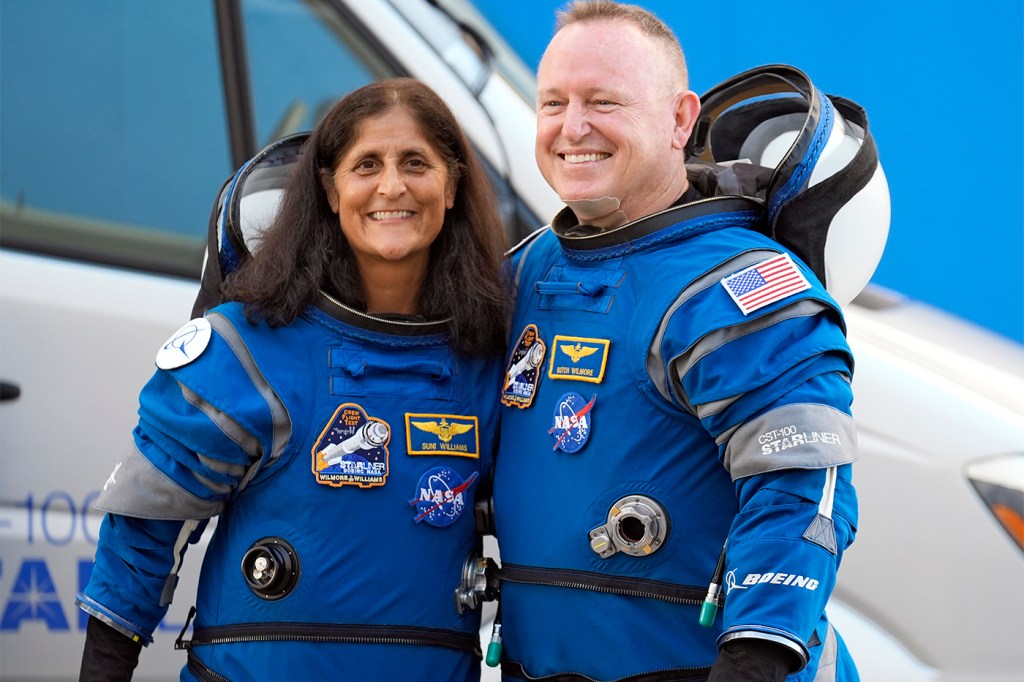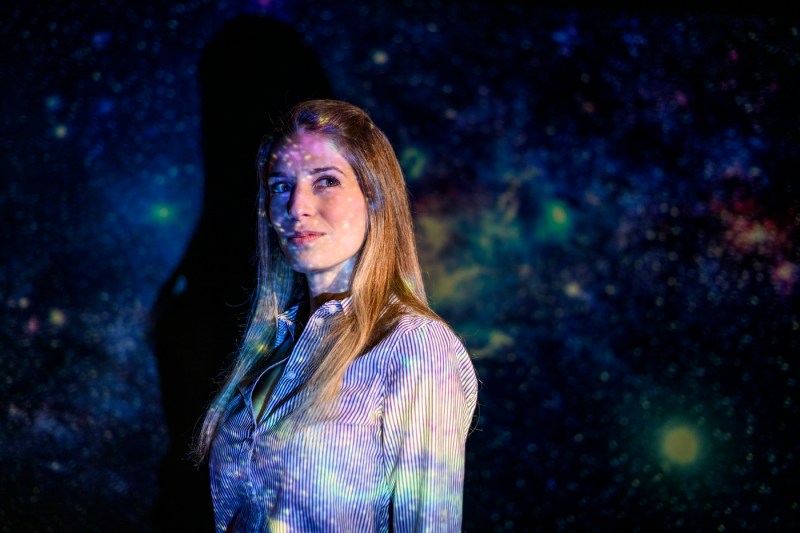What happens to a person when they’re stuck in space?
Astronauts Suni Williams and Butch Wilmore’s extended mission will have impacts on both their bodies and minds.

What was supposed to be a weeklong test flight in space has turned into a months-long stay for astronauts Butch Wilmore and Suni Williams. While the unexpected delays from their mission may not have any negative side effects on the future of space exploration, it could affect their physical and mental health.
What happens to your body when you’re in outer space?
Jacqueline McCleary, assistant physics professor at Northeastern University, says the term for the effects of being in space are summed up by the acronym RIDGE, which stands for radiation, isolation and confinement, distance from Earth, gravity fields, and hostile/closed environments.
All those factors can affect a person, McCleary says.
“All space flight involves being in a microgravity environment,” she says. “Astronauts essentially … are perpetually falling in an elevator.”


‘Motion sickness on steroids’
The longest space mission on record was about 476 days, McCleary says, so knowledge on the long-term effects are limited and research is still ongoing.
Wilmore and Williams blasted off from Florida on June 5. So, as of Sept. 20, they have been in space 107 days. But McCleary says astronauts who are in space for even short periods experience space sickness, which McCleary described as “motion sickness on steroids.” Astronauts might experience dizziness, facial swelling and digestive issues as fluids accumulate and shift in their body.
Studies have found that astronauts on longer flights, like the one Wilmore and Williams are on, may experience more severe issues. McCleary says astronauts who have been in space for close to a year have been found to come back with changes to their gene regulation, gut microbiome, artery dimensions, the thickness in parts of their eyes (which can affect vision), and their cognitive function.
Their skeletal muscles also atrophy over time because they’re not fighting gravity and building resistance. Bone density also declines for the same reason, though McCleary adds that astronauts have special treadmills and weights they can use on flights to try to reduce this weakening.
Radiation and mental health
While this all sounds frightening, McCleary says that most of these changes resolve themselves within six months of being back on Earth. But the exposure astronauts have to radiation in space can have long-term side effects.
“Space is a pretty hostile place,” McCleary says. “There’s all sorts of high-energy particles called cosmic rays whizzing around. If they manage to hit DNA, they have enough energy to break it down. If you’re in space, you don’t enjoy the protection of Earth’s magnetic field, which tends to sweep away those high-energy particles. Even if you’ve got a nice, thick metal shell protecting you, radiation can still tunnel through, and over time, as more DNA gets impacted, the cancer risk increases.”
What happens to a person’s mental health when trapped in space?
Then there’s the astronauts’ mental health. Being separated from loved ones can take a toll, whether it’s from social distancing or because one is estranged in space.
Moka Yoo-Jeong, an assistant nursing professor at Northeastern University who studies social relationships, says there’s a difference between loneliness and social isolation. Loneliness is how people feel about their social connection and often represents a disconnect between their actual and desired relationships. Social isolation is when someone is actually disconnected from others.
“When we’re talking about stranded astronauts, they’re isolated from the Earth and from people,” Yoo-Jeong says. “They have each other as crew members, but they only have a small space and they don’t have frequent contact with other folks that are important to them.”
Exercise to maintain strength
However, just as it’s important for astronauts to exercise to keep up their strength, finding social connection in space is crucial for their health. Yoo-Jeong says evidence shows that a lack of social connection can impact physical health in negative ways. Over time, feelings of loneliness and isolation can lead to depression and anxiety, as well as issues with sleep and spiked cortisol levels.
While Yoo-Jeong says astronauts are probably prepared to deal with this, it’s likely these feelings are amplified, especially in their situation where their stay became unexpectedly long. And while the pair has each other, unless they are very close, they’re likely to still have some feelings of loneliness.
“Your feelings of loneliness are increased when you feel that you don’t have an intimate relationship with someone,” Yoo-Jeong says. “Even if these two people have each other, if they don’t feel they’re intimately connected … I think that will make them feel lonely.”





